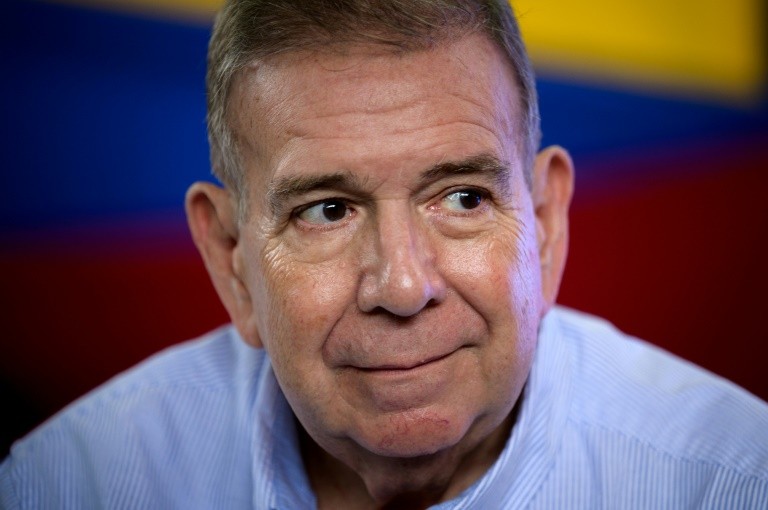
A Venezuelan court granted an arrest warrant Monday for opposition presidential candidate Edmundo Gonzalez Urrutia, who claims to have rightfully won July elections that authorities awarded to incumbent Nicolas Maduro.
The court, the prosecutor's office said on Instagram, had granted its request for a warrant for Gonzalez Urrutia for "serious crimes."
The office had earlier published its request to the court on social media, in which it listed the alleged crimes that stem from the opposition's insistence that Maduro and his allies stole the July 28 presidential vote.
Venezuela's National Electoral Council (CNE), most of whose members are friendly to 61-year-old Maduro, declared him reelected to a third six-year term -- an outcome disputed by the opposition and much of the international community.
The United States, the European Union and several Latin American countries have refused to recognize the result without seeing detailed voting results.
The CNE has said it cannot publish the records as hackers had corrupted the data, though observers have said there was no evidence of that.
Gonzalez Urrutia, a retired diplomat who replaced opposition leader Maria Corina Machado on the ballot at the last minute, has been in hiding since shortly after the election.
Maduro has called for his imprisonment and that of Machado, who was barred by Venezuelan institutions from seeking election on charges widely dismissed as trumped up.
She, too, has been mostly in hiding since the vote, though she has led several organized protests against Maduro.
The opposition published its own polling-station election results, which it says show Gonzalez Urrutia won the race by a landslide.
This is at the source of the charges against him, which include "usurpation" of public functions, "forgery" of a public document, incitement to disobedience, sabotage, and "association" with organized crime and financiers of "terrorism."
Gonzalez Urrutia has ignored three summons to appear before prosecutors investigating him, prompting Maduro to label the opposition figure a "coward" who was "leading a coup d'etat from hiding."
Maduro has also blamed the opposition for the deaths of 25 civilians and two soldiers in protests that broke out spontaneously after the CNE announced his reelection to a third six-year term.
Nearly 200 people were injured and more than 2,400 arrested.
Since coming to power in 2013, Maduro has presided over an economic collapse that has seen more than seven million Venezuelans flee the country as GDP plunged 80 percent in a decade.
Last week, a blackout left most of Venezuela without power for hours on end in what the regime said was "sabotage" under a US-led plot to overthrow the socialist leader.
Maduro has managed to cling to power despite sanctions stepped up after his 2018 reelection, also dismissed as a sham by dozens of countries.
The United States on Monday seized the plane used by Maduro and his entourage, citing sanctions violations.
US officials took the plane in the Dominican Republic and flew it to Florida.
"Maduro and his representatives have tampered with the results of the July 28 presidential election, falsely claimed victory, and carried out wide-spread repression to maintain power by force," a US National Security Council spokesperson said Monday.
The seizure of the plane "is an important step to ensure that Maduro continues to feel the consequences from his misgovernance of Venezuela," the spokesperson added.
Maduro denounced the move as tantamount to "piracy."
Washington has had sanctions in place since 2005 against Venezuelan individuals and entities "that have engaged in criminal, antidemocratic, or corrupt actions," according to a Congressional briefing document.
These were expanded later under former president Donald Trump "in response to increasing human rights abuses and corruption by the government of Nicolas Maduro... to include financial sanctions, sectoral sanctions, and sanctions on the government."








